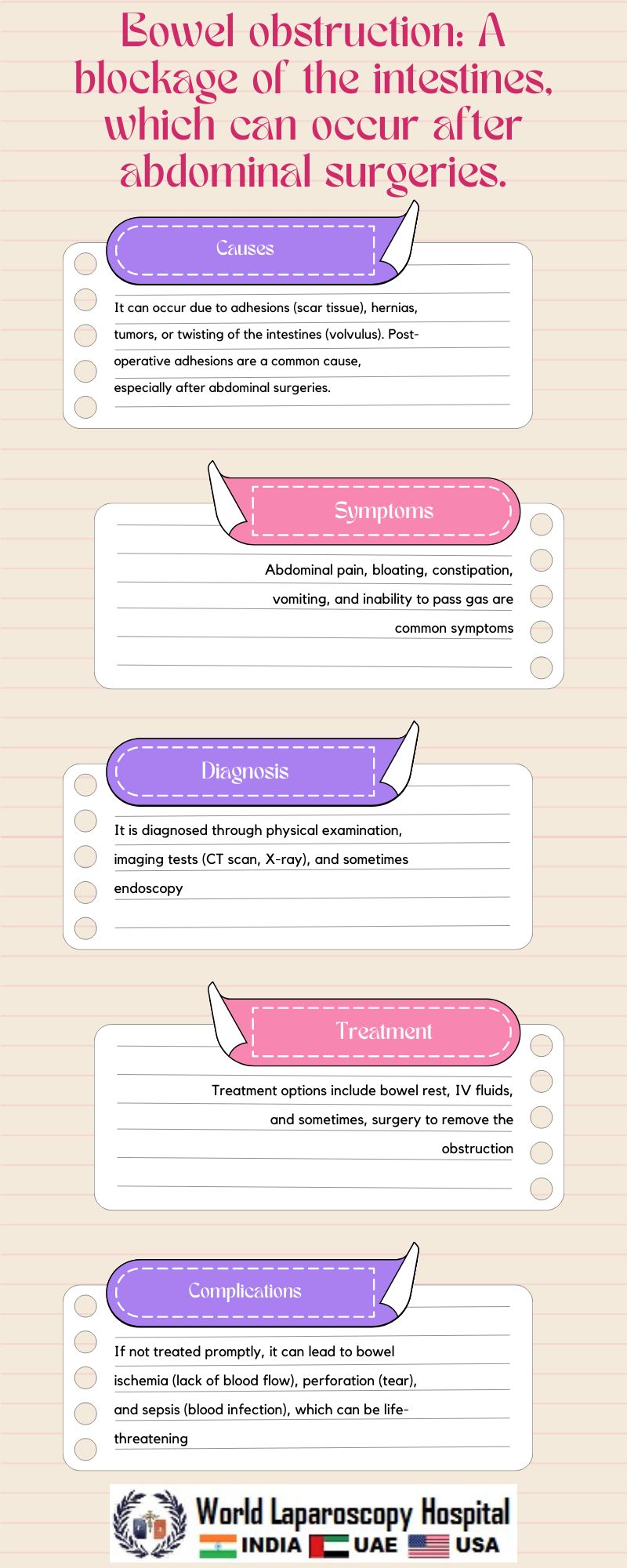Bowel obstruction: A blockage of the intestines, which can occur after abdominal surgeries.
Introduction
Bowel obstruction is a serious condition that can occur after abdominal surgery. It happens when there is a blockage in the intestines, preventing the normal passage of food and waste. This can lead to severe complications if not treated promptly. In this article, we will discuss the causes, symptoms, diagnosis, and treatment options for bowel obstruction after abdominal surgery.

Causes of Bowel Obstruction After Abdominal Surgery:
There are several reasons why bowel obstruction can occur after abdominal surgery. One common cause is adhesions, which are bands of tissue that form between abdominal tissues and organs. These adhesions can twist or pull on the intestines, causing a blockage. Other causes include hernias, tumors, inflammatory bowel disease, and volvulus, which is a twisting of the intestines.
Symptoms of Bowel Obstruction:
The symptoms of bowel obstruction can vary depending on the location and severity of the blockage. Common symptoms include abdominal pain, bloating, constipation, diarrhea, vomiting, and inability to pass gas. In severe cases, bowel obstruction can lead to dehydration, electrolyte imbalances, and organ damage.
Diagnosis of Bowel Obstruction:
To diagnose bowel obstruction after abdominal surgery, doctors will perform a physical exam and may order imaging tests such as X-rays, CT scans, or MRIs. These tests can help identify the location and severity of the blockage. Blood tests may also be done to check for signs of infection or dehydration.
Treatment Options for Bowel Obstruction:
Treatment for bowel obstruction after abdominal surgery depends on the underlying cause and severity of the blockage. In some cases, conservative measures such as fasting, intravenous fluids, and bowel rest may be sufficient to relieve the obstruction. However, if the blockage is severe or causing complications, surgery may be necessary to remove the obstruction.
Prevention of Bowel Obstruction After Abdominal Surgery:
There are several steps that can be taken to reduce the risk of developing bowel obstruction after abdominal surgery. These include minimizing the use of adhesion-causing materials during surgery, performing surgery with minimal trauma to the intestines, and avoiding unnecessary surgery in patients with a history of abdominal surgery.
Conclusion:
Bowel obstruction is a serious complication that can occur after abdominal surgery. It is important to recognize the symptoms and seek prompt medical attention if you suspect you have a bowel obstruction. With early diagnosis and appropriate treatment, most cases of bowel obstruction can be successfully treated.
| Older Post | Home | Newer Post |

